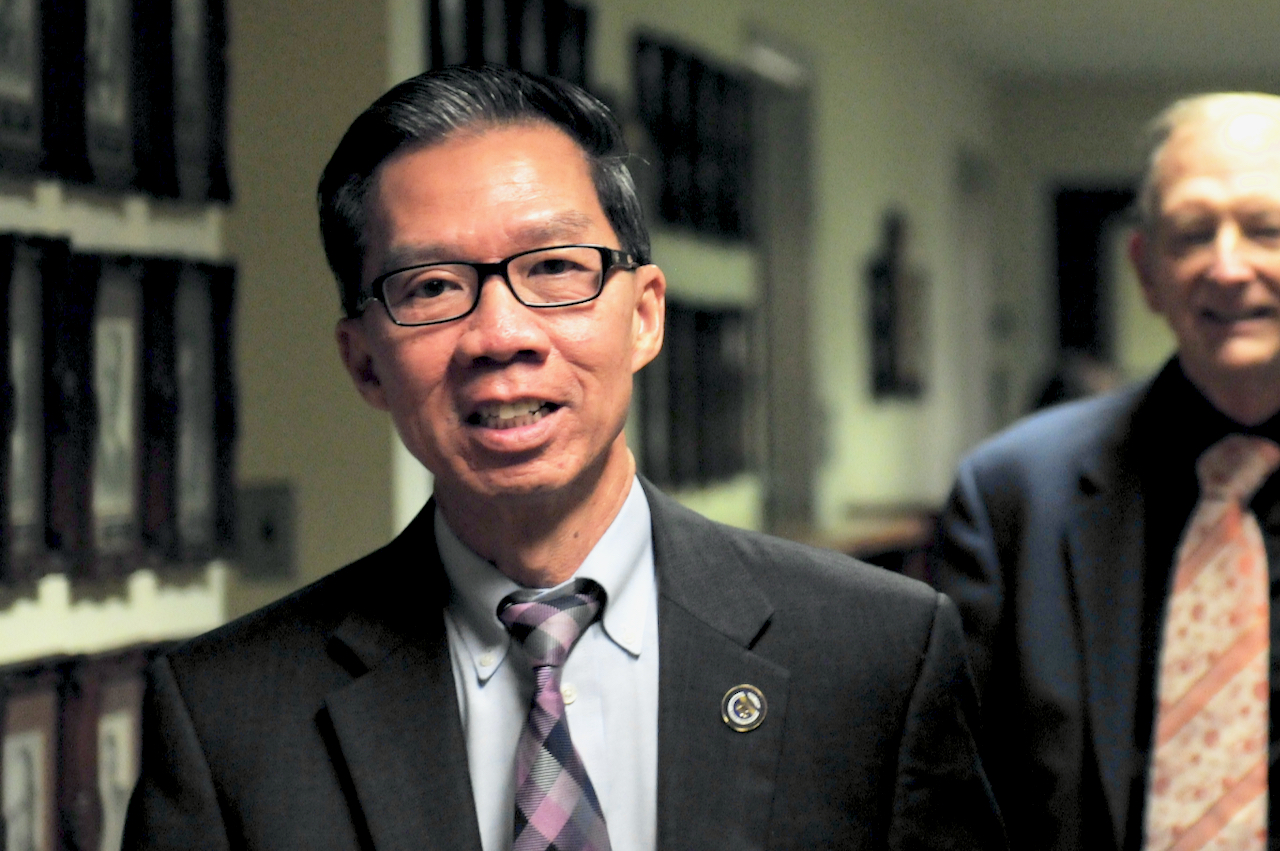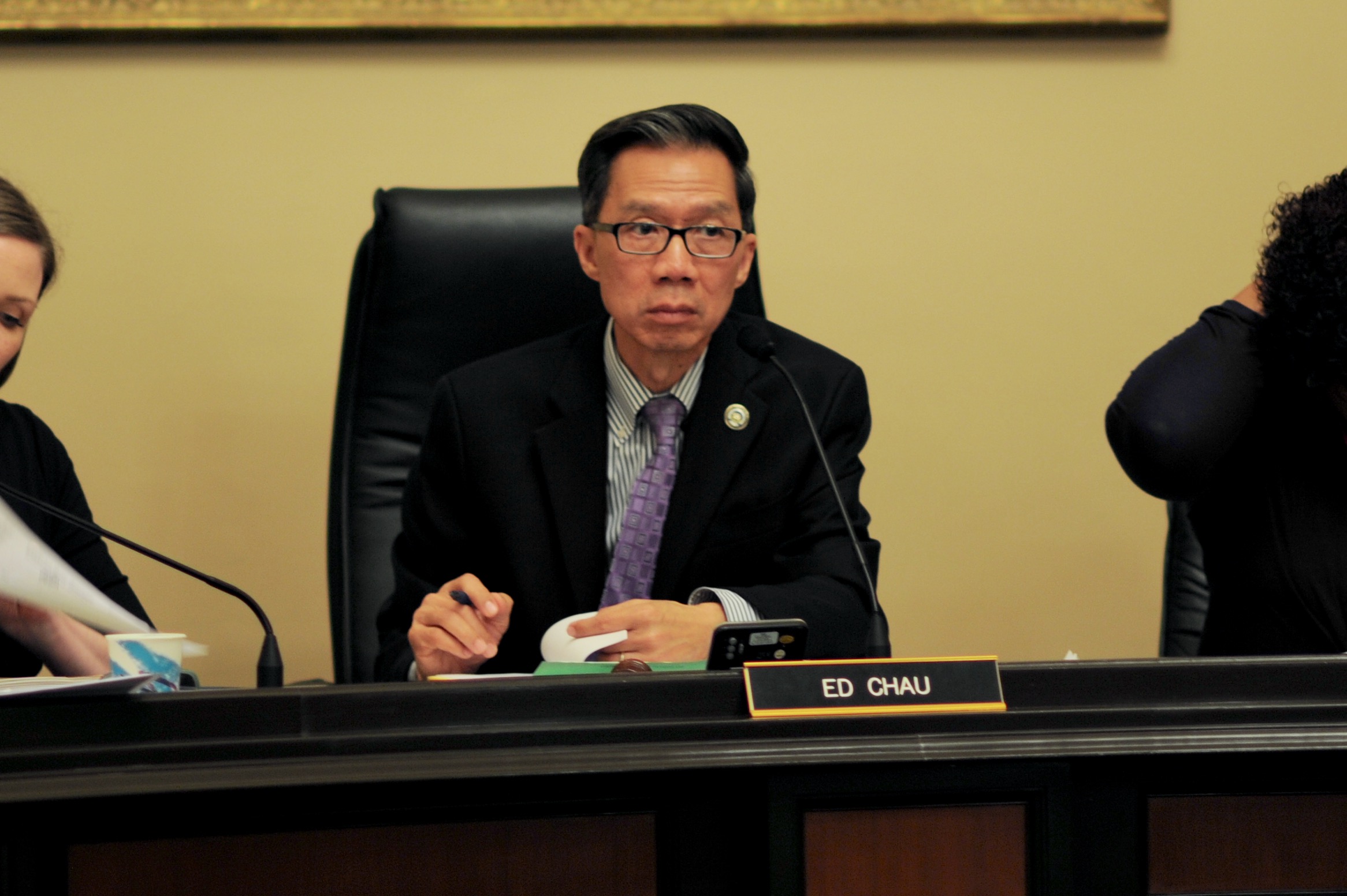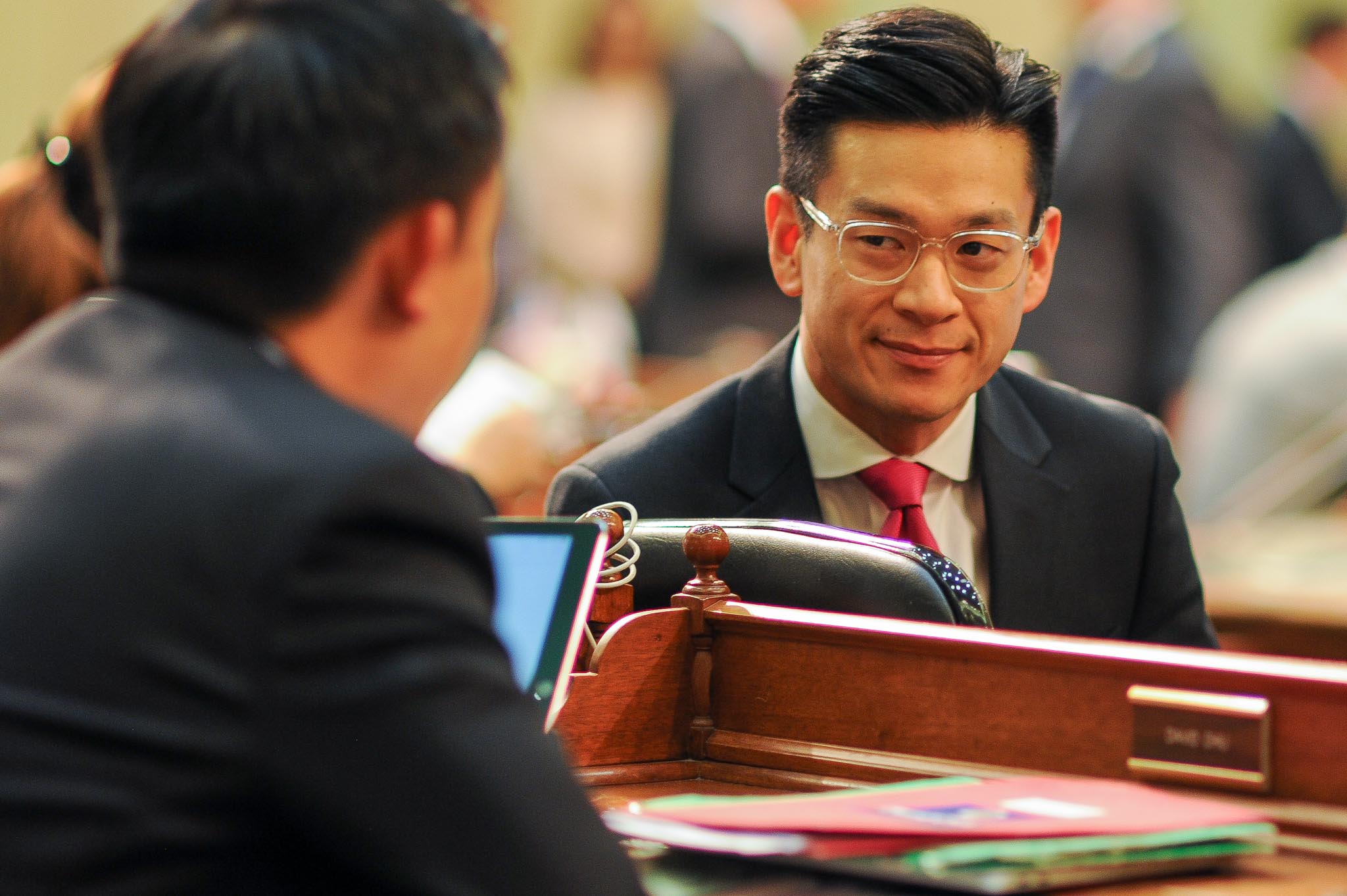
Attorney General Rob Bonta. (Photo: Kevin Sanders for California Globe)
Tech Industry Group Sues AG Rob Bonta & State Over New Child Online Privacy Law
Parents and guardians are best suited to decide how their families will have an online presence
By Evan Symon, December 14, 2022 12:11 pm
NetChoice, a large tech industry group, sued the state of California on Wednesday over a law passed earlier this year designed to protect the data and privacy of children online over free speech and ease of business concerns.
Signed into law in September by Governor Gavin Newsom, AB 2273 established the California Age-Appropriate Design Code Act. Under it, businesses that provide an online service, product, or feature likely to be accessed by children to have high privacy levels included as default and provide privacy information, terms of service, policies, and community standards concisely and prominently for those under 18 to read. In addition, companies would not be allowed to use a child’s personal information, from collecting, selling, or retaining a child’s geolocation, or from having children give personal information.
A Children’s Data Protection Working Group would also be formed by January 2024, to best figure out how to implement the new law by the time of it’s start date of July 1, 2024.
“As the mom of two young girls, I am personally motivated to ensure that Silicon Valley’s most powerful companies redesign their products in children’s best interest,” said Assemblywoman Buffy Wicks (D-Oakland), one of the bill’s two authors, in a statement in September. “Today, California is leading the way in making the digital world safe for American children, becoming the first state in the nation to require tech companies to install guardrails on their apps and websites for users under 18. The Design Code is a game changer, and a major step forward in creating a global standard for the protection of youth online.”

While AB 2273 received praise for adding protections for children online, it also received a large backlash from tech companies. They immediately pointed out several first amendment issues with the law, as well as infringing on the editorial rights of different websites. Also noted was that possible verification techniques could be even riskier for children, who may give up vulnerable information as a result of simply accessing different websites.
NetChoice, a trade group consisting of several top companies including Amazon, Expedia, Google, Lyft, Meta, Nextdoor, Paypal, TikTok, Twitter, and others, led the way, building up a case in the last few months in preparation of a lawsuit.
“The bill’s motivations are well-meaning but many of its chosen means are unconstitutional and risk unintended consequences,” said NetChoice Counsel Chris Marchese in September. “The law violates the First Amendment by chilling constitutionally protected speech and by infringing on the editorial rights of websites, platforms, and apps of all sizes and ideologies.”
NetChoice sues state, Bonta
On Wednesday, this culminated in NetChoice suing the state over the California Age-Appropriate Design Code Act. In the suit, NetChoice v. Bonta, The group argues that the Act violates the first amendment by “hobbling” free speech and that companies would be severely restricted in the editorial decisions over what content they put out on their sites. They also note that the law would lead to over-moderation of content, having the companies “serve as roving censors of speech on the Internet.” The age verification features under the law were also charged with frustrating anonymous and casual browsing and hurting privacy concerns of users.
“In December 2022, NetChoice sued to enjoin and invalidate California’s AB 2273 to defend the First Amendment and the privacy of families online,” said the group in a statement on Wednesday. “Our complaint explained: The state of California is violating the First Amendment by telling sites how to manage constitutionally protected speech, not how to secure sensitive data about children. It echoes similar violations in Texas and Florida’s anti-bias laws for failing to honor the First Amendment.
“Additionally, AB 2733 violates the First Amendment because it deputizes online services to act as roving Internet censors at the state’s behest, compels speech, violates editorial discretion, and is overly vague and broad. AB 2273 undermines children’s privacy by forcing sites, regardless of how secure they are, to track and store information identifying which users are children. Child predators and hackers will be drawn to less secure sites as goldmines for children’s sensitive data. By ignoring the Commerce Clause of the U.S. Constitution, California conflicts with existing federal laws like COPPA that already work to protect kids online nationwide.
“Parents and guardians are best suited to decide how their families will have an online presence. AB 2273 takes away that freedom and puts it into the hands of the state. The act violates the Fourth Amendment by forcing sites to reveal private internal communications.”
Tech law experts noted to the Globe on Wednesday that the suit, filed with the United States District Court Northern District of California, would likely put the state on edge due to it covering multiple different violations.
“Sometimes a suit is put out there to delay a law or something like that, or filed a few days afterwards or something. NetChoice v. Bonta doesn’t do that,” explained Gil Patterson, a tech lawyer in Silicon Valley, to the Globe on Wednesday. “Every major part of the law seems to be an amendment violation, or running into federal law, or just left largely unclear, or as the suit puts it, vague. This was a well thought out complaint and covers all their bases. This is exactly the sort of suit that the state hopes that they don’t get. But, alas, they got it.”
As of Wednesday morning, Attorney General Bonta has not responded to the filing of the suit. The act is scheduled to come into law in mid-2024.
- New Information On Healthcare CEO Assassin Found SFPD Identified Shooter Days Before Arrest - December 14, 2024
- Schools Brace For New Law Prohibiting Notifying Parents of Students Pronoun Change - December 14, 2024
- New Reports Finds EPA Will Likely Give A Waiver For California’s 2035 Gas-Powered Car Sales Ban Mandate - December 14, 2024





As of Wednesday morning, Attorney General Bonta has not responded to the filing of the suit? Maybe he and other ethically challenged Democrats are waiting for payoffs?
The First Amendment gives permission for lots of awful things. It’s one of the reasons I think our Constitution needs a major rewrite.